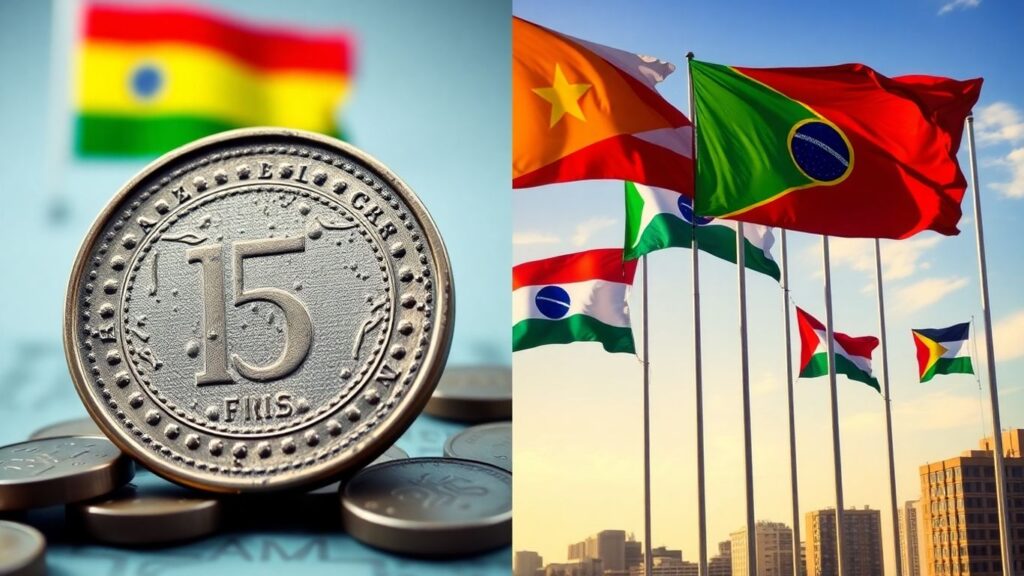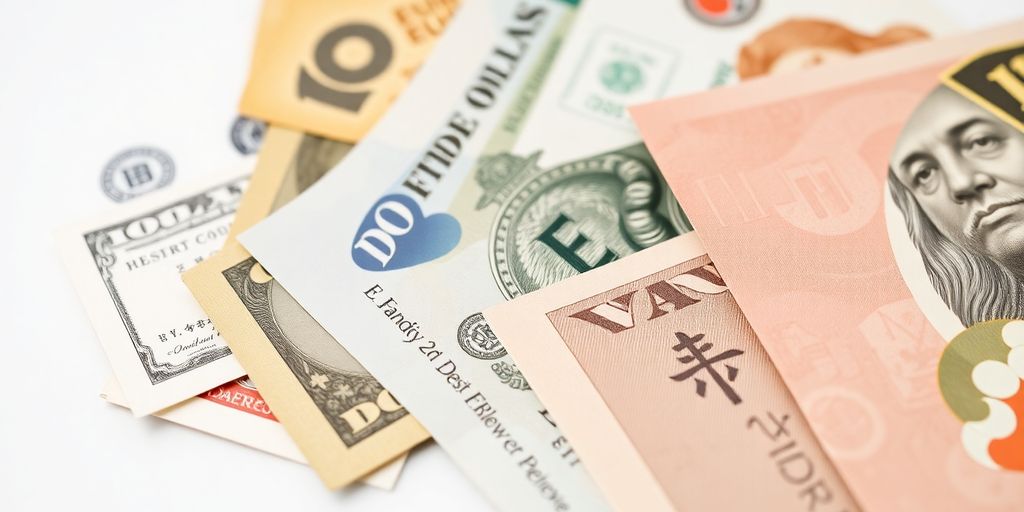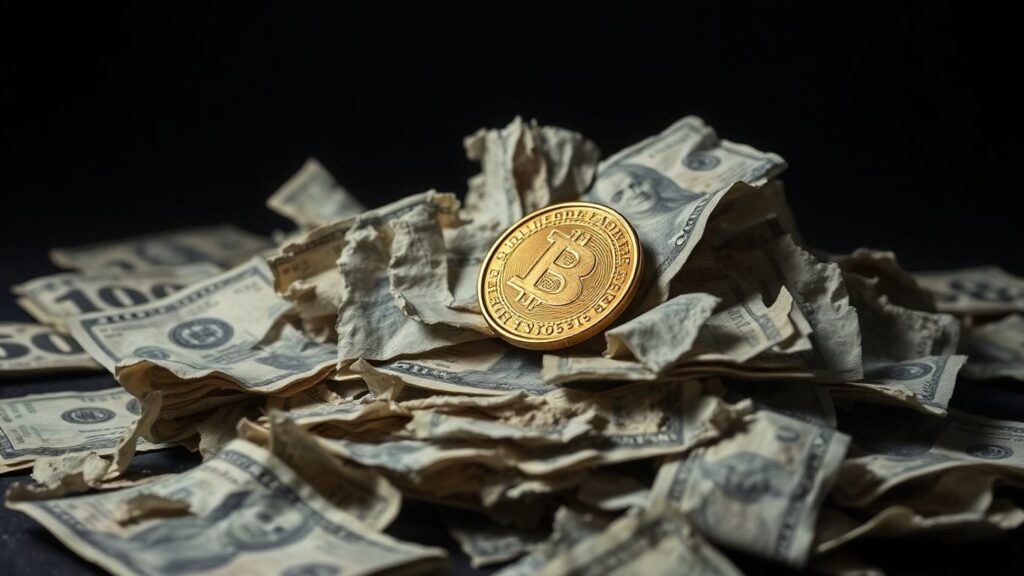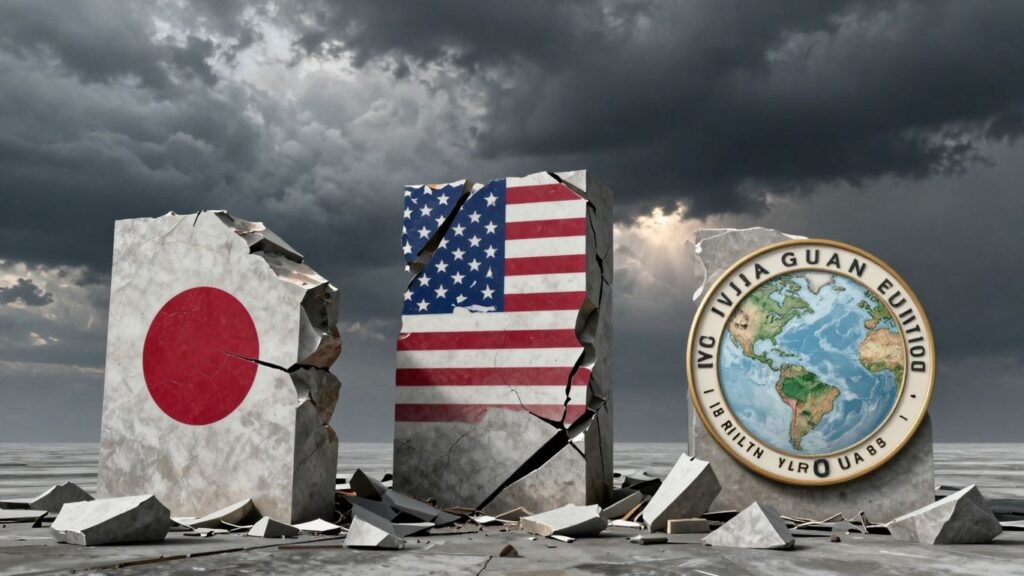Alasdair MacLeod: The Looming Collapse of Fiat Currency and the Rise of BRICS

This past week saw a deep dive into the global financial landscape, with a particular focus on the potential collapse of fiat currencies and the growing influence of the BRICS nations. The discussion highlighted significant economic shifts and warned of impending financial instability.
Key Takeaways
- Debt Traps and Currency Collapse: Unsustainable debt levels are creating debt traps in major G7 currencies, with the US dollar facing a particularly grim outlook.
- The Dollar’s Demise: Foreign holders of roughly $40 trillion in financial assets are poised to react to the dollar’s weakening position, potentially triggering a collapse of the debt and credit bubble.
- Historical Parallels: The current situation draws parallels to 1929, with a credit bubble collapse and protectionist trade policies (like tariffs) creating immense uncertainty.
- BRICS and a Gold-Backed Yuan: China is actively working towards a gold-backed yuan, potentially creating a new Bretton Woods system and challenging the dollar’s global dominance.
- Economic Slump and Inflation: The combination of a declining economy, rising interest rates, and falling purchasing power of currencies points towards a severe economic and fiat currency crisis.
- Government Inaction: Politicians lack the mandate and will to address these issues, often opting for politically expedient but economically unsound policies.
- The End of the Fiat Era: The current system is unsustainable, and we are approaching the end of the fiat currency era.
The Debt Bubble and Dollar’s Weakening Position
Alasdair MacLeod, a seasoned stockbroker with decades of experience, paints a stark picture of the global economy. He points to the widespread debt traps affecting major currencies, with the US dollar being a primary concern. Foreign investors holding trillions in US financial assets are sitting on the sidelines, seemingly unaware of the impending storm. MacLeod warns that this complacency is about to change, leading to a significant collapse of the debt and credit bubble, particularly in the coming months and into early next year.
He draws parallels to the 1920s, noting the combination of a booming economy followed by a credit bubble collapse that saw the Dow Jones Industrial Average plummet by 90%. The introduction of Smoot-Hawley tariffs then exacerbated the situation. Today, similar uncertainties are being fueled by what MacLeod calls "Trump’s tariff tantrum," creating a volatile and unpredictable environment.
The Rise of the BRICS and a New Monetary Order
Meanwhile, the BRICS nations, including China, are strategically positioning themselves for a post-dollar world. China, in particular, is moving towards a gold-backed yuan, establishing vaults in Hong Kong and Saudi Arabia to facilitate this. This move is seen as a prelude to a new international monetary system, potentially modeled after the Bretton Woods system but with the yuan at its center.
This shift means that a significant portion of the world’s population and GDP will no longer rely on the dollar. MacLeod estimates that around $130 trillion in financial assets could be seeking a new home, potentially flooding back into the US and collapsing the dollar’s value. This, in turn, would have severe consequences for the US economy and other major economies like the Eurozone and Japan.
The Inevitable Crisis and Government’s Role
The current economic climate is characterized by a combination of a declining economy, rising interest rates, and the erosion of purchasing power, which MacLeod refers to as inflation. He believes this is not just stagflation but a more dangerous mix of economic and fiat currency collapse, signaling the end of the fiat currency era. The problem, he argues, is that governments and central banks are trapped by political considerations rather than sound economic principles. They are unable to address the root causes of the crisis, such as excessive debt and spending, due to a lack of political will and mandate.
MacLeod suggests that the Federal Reserve’s actions, such as potential rate cuts, are driven by political pressure rather than economic necessity. He believes that bond yields are destined to rise, which will inevitably lead to a collapse in financial asset values, including equities and housing. The housing market, in particular, is vulnerable as rising mortgage rates will likely lead to falling property prices and negative equity.
Protecting Your Wealth
In the face of this impending crisis, MacLeod’s advice is clear: get out of credit and move into real money, which he defines as gold and silver. He emphasizes that gold’s price increase is not necessarily an indicator of its expensiveness but rather a reflection of the declining value of credit and fiat currencies. Central banks, he notes, are the primary buyers of gold, recognizing the risks associated with holding dollars and euros.
He also touches upon the potential fragmentation of Europe, with the euro itself being a fragile construct. The lack of political will to control deficits and the commitment to welfare states make a return to a gold standard unlikely. Ultimately, MacLeod believes that a significant crisis is needed to focus minds and create the political mandate for necessary economic reforms. Until then, governments will continue down a path of political nonsense, leading to an inevitable economic crisis.








Responses